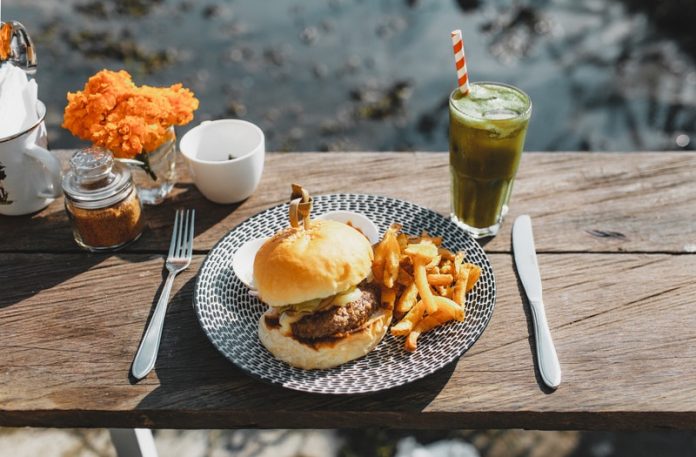
In a new study, researchers found that a compound produced in the gut when we eat red meat damages our arteries and may play a key role in boosting the risk of heart disease as we get older.
The finding also suggests that people may be able to prevent or even reverse such age-related decline via dietary changes and targeted therapies, like novel nutritional supplements.
The research was conducted by a team at the University of Colorado Boulder.
Eat a slab of steak or a plate of scrambled eggs, and your resident gut bacteria get to work immediately to break it down.
As they metabolize the amino acids L-carnitine and choline, they churn out a metabolic byproduct called trimethylamine, which the liver converts to trimethylamine-N-Oxide (TMAO) and sends coursing through your bloodstream.
Previous studies have shown that people with higher blood levels of TMAO are more than twice as likely to have a heart attack or stroke and tend to die earlier.
But to date, scientists haven’t completely understood why.
In the study, the team set out to answer three questions:
Does TMAO somehow damage our vascular system? If so, how? And could it be one reason why cardiovascular health gets worse—even among people who exercise and don’t smoke—as we get older?
They measured the blood and arterial health of 101 older adults and 22 young adults and found that TMAO levels strongly rise with age.
They found adults with higher blood levels of TMAO had much worse artery function, the new study found, and showed greater signs of oxidative stress, or tissue damage, in the lining of their blood vessels.
When the researchers fed TMAO directly to young mice, their blood vessels swiftly aged.
Preliminary data also show that mice with higher levels of TMAO exhibit a decrease in learning and memory, suggesting the compound could also play a role in age-related cognitive decline.
On the flip side, old mice that ate a compound called dimethyl butanol, (found in trace amounts in olive oil, vinegar, and red wine) saw their vascular dysfunction reverse. Scientists believe that this compound prevents the production of TMAO.
The team notes that everyone—even a young vegan—produces some TMAO. But over time, eating a lot of animal products may take a toll.
This means the more red meat you eat, the more you are feeding those bacteria that produce it.
The study is an important breakthrough because it sheds light on why our arteries erode with age, even in the healthiest people.
The research team is now further exploring compounds that might block the production of TMAO to prevent age-related vascular decline.
For now, they suggest people consider skipping the steak and grilling up some tofu instead, as a plant-based diet can reduce levels of TMAO too.
One author of the study is Vienna Brunt, a postdoctoral researcher in the Department of Integrative Physiology.
The study is published in Hypertension.
Copyright © 2020 Knowridge Science Report. All rights reserved.



